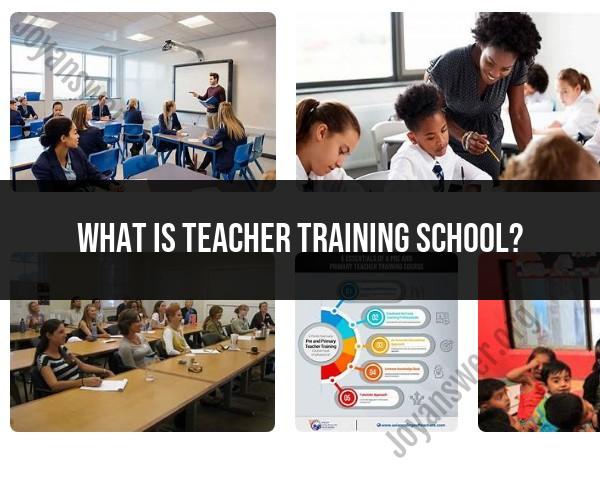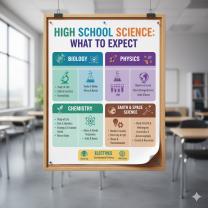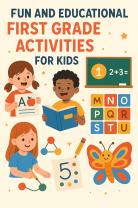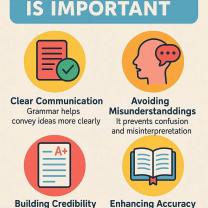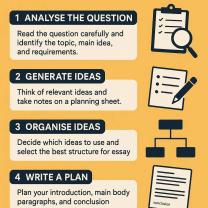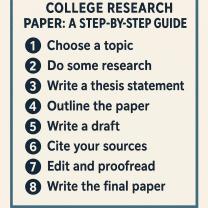What is teacher training school?
A teacher training school is an educational institution that focuses specifically on preparing individuals to become educators or teachers. The primary goal of these schools is to equip aspiring teachers with the knowledge, skills, and competencies needed to be effective in the classroom. Teacher training schools play a crucial role in shaping the next generation of educators and ensuring that they are well-prepared to meet the diverse needs of students.
Key features of teacher training schools include:
Pedagogical Training: Teacher training schools provide instruction on educational theories, teaching methods, and classroom management techniques. This includes understanding various learning styles, creating lesson plans, and implementing effective teaching strategies.
Subject-Specific Training: Depending on the level of education (e.g., elementary, secondary) and the subject area, teacher training schools may offer specialized training in specific subjects. This ensures that future teachers have a strong grasp of the content they will be teaching.
Practicum and Field Experience: Teacher training programs typically include practical experiences, such as student teaching or internships, where aspiring educators work in real classroom settings under the supervision of experienced teachers. This hands-on experience is crucial for applying theoretical knowledge to real-world situations.
Educational Psychology: Understanding the psychological aspects of learning and development is essential for effective teaching. Teacher training schools often cover topics related to educational psychology to help teachers understand the cognitive and emotional needs of their students.
Assessment and Evaluation: Teachers need to be able to assess student progress and adjust their teaching methods accordingly. Teacher training programs teach educators how to design and implement assessments, interpret results, and use feedback to improve teaching practices.
Professional Development: Continuous learning is essential in the field of education. Teacher training schools often emphasize the importance of ongoing professional development to keep educators updated on new teaching methods, technologies, and educational research.
It's important to note that teacher training schools can take various forms, including traditional colleges and universities offering education degrees, as well as specialized institutions dedicated solely to teacher training. The structure and curriculum may vary, but the overarching goal is to prepare individuals for successful careers in education.
What does a teacher training school typically cover in its programs?
The specific content of teacher training programs varies depending on the institution, the type of teaching credential being pursued, and the educational level being prepared for. However, there are some general areas that most teacher training programs typically cover:
Foundational knowledge:
- Child development and psychology: Understanding how children grow, learn, and develop at different stages is essential for effective teaching.
- Curriculum and instruction: This includes knowledge of different teaching methods, strategies, and assessments, as well as the ability to develop and implement effective lesson plans.
- Subject matter expertise: Teachers need a strong understanding of the content they will be teaching, whether it be math, science, history, or another subject.
- Educational technology: Learning how to use technology effectively in the classroom is an essential skill for teachers in the 21st century.
Pedagogical skills:
- Classroom management: This includes creating a positive and productive learning environment, setting clear expectations, and managing student behavior.
- Differentiation: Meeting the diverse needs of all students in the classroom is a crucial skill for teachers.
- Assessment and evaluation: Teachers need to be able to assess student learning effectively and use the data to inform their instruction.
- Communication and collaboration: Effective communication and collaboration with students, parents, colleagues, and administrators are essential for success in teaching.
Professional development:
- Professional ethics and conduct: Teachers are expected to uphold high ethical standards and conduct themselves in a professional manner.
- Reflective practice: Continuously reflecting on their practice is essential for teachers to improve their skills and effectiveness.
- Lifelong learning: Teachers are expected to stay current with the latest research and best practices in education.
In addition to these core areas, many teacher training programs also offer specialized courses in areas such as special education, English language learning, and early childhood education.
Here are some additional aspects that might be covered in teacher training programs, depending on the specific program:
- Social and emotional learning (SEL): Helping students develop the social and emotional skills they need to succeed in school and life.
- Equity and inclusion: Creating a classroom environment that is welcoming and inclusive for all students, regardless of their background or abilities.
- Trauma-informed teaching: Understanding the impact of trauma on students and learning how to support students who have experienced trauma.
- Culturally responsive teaching: Adapting teaching methods and materials to meet the needs and cultural backgrounds of diverse student populations.
- Technology integration: Using technology effectively to enhance teaching and learning.
It is important to note that these are just general guidelines. The specific content of any given teacher training program will vary depending on the factors mentioned above. To learn more about the curriculum of a specific program, please contact the program directly.
